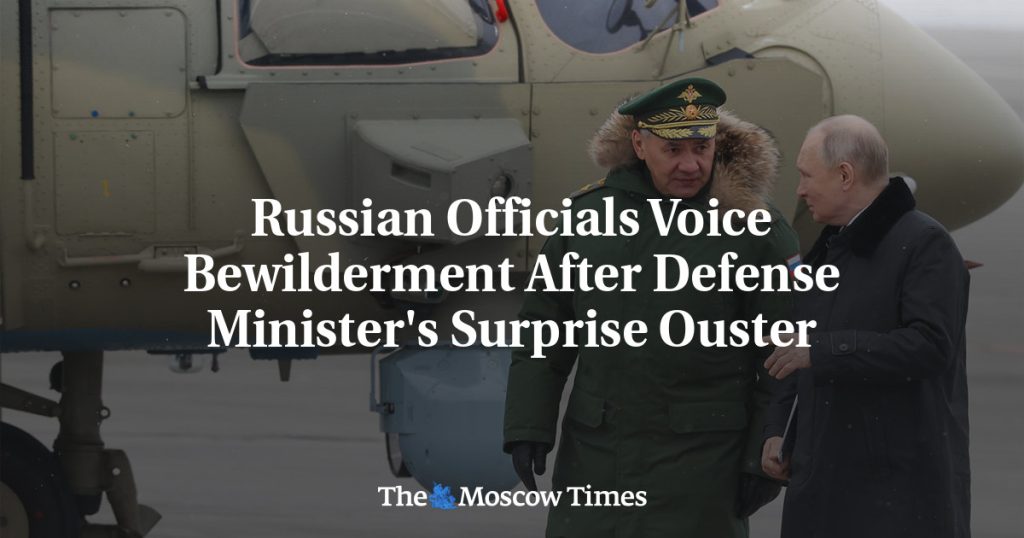The sudden dismissal of Russian Defense Minister Sergei Shoigu has raised concerns and confusion among political and military leaders in Russia. Many officials, both current and former, were surprised by the decision to remove Shoigu, who has been a loyal defense minister under President Vladimir Putin since 2012. Some are worried that this reshuffle could jeopardize Russia’s invasion of Ukraine, especially as the military is gaining momentum on the battlefield. The decision to remove Shoigu was reportedly made last summer following a mutiny by the Wagner mercenary group against Russia’s military leadership.
The appointment of Andrei Belousov, a former deputy prime minister and economist with no military experience, as the new defense minister has been met with shock and criticism. Many view Belousov as a theoretical economist who lacks practical experience in the defense field. Some insiders believe that Belousov’s appointment is part of a strategy to optimize military spending, particularly in the context of a long-term conflict in Ukraine. Others see it as a move to prevent corruption within the Defense Ministry and ensure that funds are allocated effectively to support the ongoing war effort.
Belousov’s task as the new defense minister is seen as optimizing spending on the war in Ukraine to ensure that resources are focused on military operations rather than lining the pockets of officials within the Defense Ministry. He is described as loyal to Putin and committed to planned economic policies. Some observers see his appointment as a step towards improving oversight of the military’s economy, similar to the reforms implemented by Shoigu’s predecessor, Anatoly Serdyukov. However, concerns remain about the impact of potential reforms under a civilian minister on the ongoing war effort in Ukraine.
While some sources close to the Kremlin and Defense Ministry view Shoigu’s dismissal as expected and necessary, others worry that appointing a civilian defense minister could disrupt the war effort in Ukraine. There are concerns about the implications of potential reforms aimed at increasing transparency and combatting corruption within the Defense Ministry. Critics fear that any changes to the system could undermine the progress made on the battlefield in Ukraine. The decision to dismiss Shoigu and appoint Belousov reflects the complexities and challenges facing Russia’s military operations and the leadership’s efforts to optimize resources and address corruption within the Defense Ministry.
The reshuffling of top positions within Russia’s defense leadership underscores the ongoing tensions and strategic shifts within the Russian military and political establishment. The sudden change in leadership at the Defense Ministry has sparked debates and concerns among officials and observers about the impact on the ongoing conflict in Ukraine and the military’s ability to maintain momentum on the battlefield. The appointment of a new defense minister with a background in economics rather than military affairs has raised questions about the rationale behind the decision and the implications for Russia’s military strategy and spending.
In conclusion, the dismissal of Sergei Shoigu and the appointment of Andrei Belousov as the new defense minister represent a significant development in Russia’s military leadership. The decision has been met with surprise, skepticism, and concern among political and military leaders, as well as experts close to the Kremlin and Defense Ministry. The challenges facing the Russian military, particularly in the context of the ongoing conflict in Ukraine, highlight the complexities and uncertainties surrounding defense policy and leadership in Russia. The appointment of Belousov signals a shift in priorities towards optimizing military spending and combating corruption within the Defense Ministry, but questions remain about the impact of these changes on the war effort and the overall effectiveness of Russia’s military operations.


